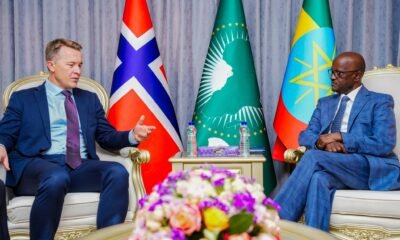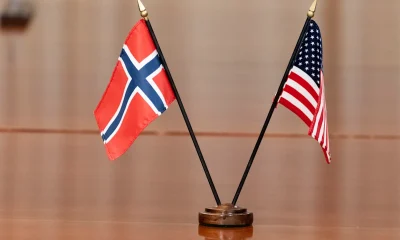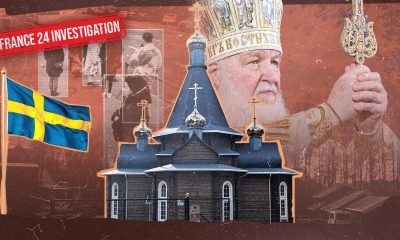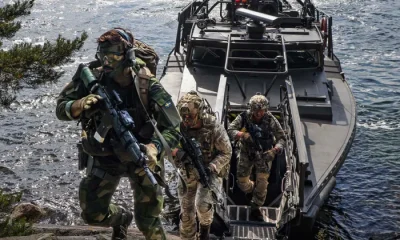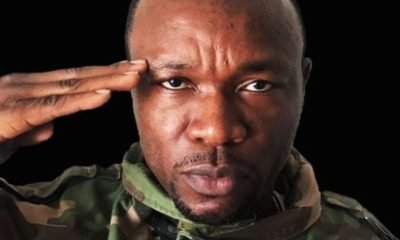Top stories
Princess Märtha Marries American Spiritual Guru Durek in Norway
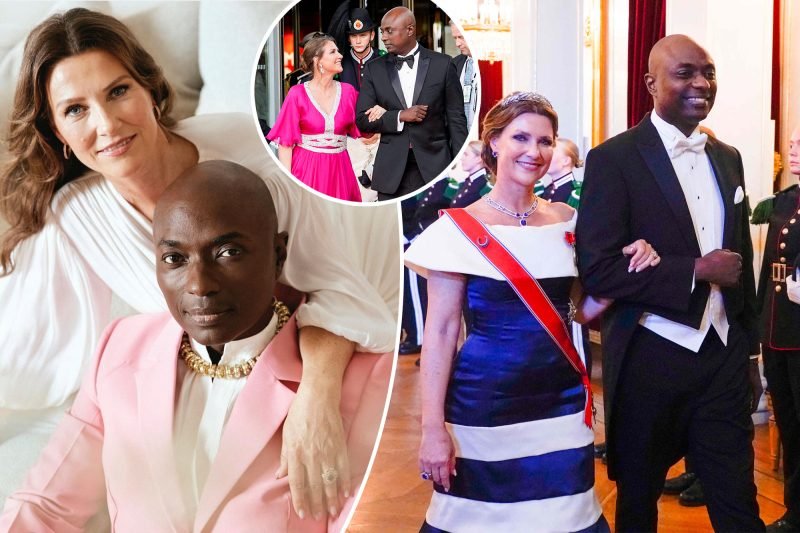
Norway’s Princess Märtha Louise married her partner, American spiritual guru Durek Verrett, in a ceremony on Saturday, held in the scenic town of Geiranger in western Norway. The wedding, which marked the culmination of three days of celebrations, was attended by members of the Norwegian and Swedish royal families, as well as various celebrities and social media influencers.
The marriage ceremony took place in an outdoor tent and was attended by a select group of guests, including Norwegian King Harald and Queen Sonja. Unlike her previous wedding in 2002, which was held at Norway’s largest cathedral and broadcast on television, this ceremony was not televised. The event was also exclusive to media outlets sponsoring the occasion, which has drawn some criticism.
Princess Märtha Louise, 52, is the fourth in line to the Norwegian throne and the daughter of King Harald and Queen Sonja. Her first marriage to Norwegian author Ari Behn ended in divorce in 2017, and they had three children together. Since then, Märtha Louise has stepped away from her official royal duties to focus on her own business ventures. She and Verrett, 49, a self-styled shaman from California, announced their relationship in 2019.
The couple has faced criticism for their commercial ventures linked to the wedding. In June, they promoted a special pink gin branded with their names and a monogram created for the occasion, which Norwegian health authorities deemed inappropriate. The palace and some members of the Norwegian parliament have expressed concerns about the commercialization of Märtha Louise’s royal status.
Märtha Louise’s decision to step back from her royal duties in 2022 was intended to separate her business activities from her royal title. Despite this, the link between her commercial ventures and her royal background has continued to attract controversy. The couple’s wedding, marked by a mix of traditional and modern elements, has been a focal point of media attention, highlighting ongoing debates about the role and visibility of the Norwegian royal family.
Durek Verrett will not be granted a royal title or become part of the core Royal House of Norway. Instead, he will be recognized as part of the extended royal family. The couple is expected to continue their activities independently from the official royal duties and maintain a private life while engaging in their various business and personal interests.
Top stories
Trump Launches Gaza Board of Peace in Davos
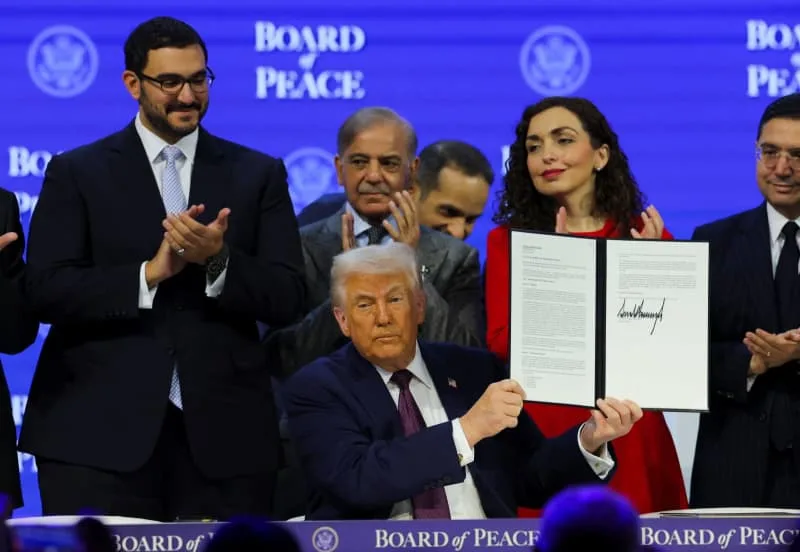
DAVOS, Switzerland — U.S. President Donald Trump on Thursday formally launched the Gaza Board of Peace (BoP), signing its official charter during a high-profile ceremony at the World Economic Forum in Davos, marking one of the most ambitious foreign policy initiatives of his second term.
“Once this board is completely formed, we can do pretty much whatever we want to do,” Trump declared, adding that the body would operate in coordination with the United Nations while addressing not only Gaza but broader global challenges.
Trump, who will chair the Board, has invited dozens of world leaders to join the initiative, positioning it as a new diplomatic platform designed to stabilize post-war Gaza and reshape international conflict resolution. Although Trump insisted the BoP would not replace the UN, the initiative introduces a parallel structure that could significantly alter the architecture of global diplomacy.
The Board’s creation has been endorsed by a United Nations Security Council resolution as part of Trump’s Gaza peace framework. However, UN spokesperson Rolando Gomez clarified that UN engagement with the BoP would remain limited strictly to the Gaza context.
So far, around 35 countries have committed to joining, including Saudi Arabia, the United Arab Emirates, Egypt, Turkey, and Belarus. Notably absent, however, are most of the permanent members of the UN Security Council. Russia said it is “studying” the proposal, France has declined to join, Britain has opted out for now, and China has yet to announce a position.
Trump has proposed that permanent members contribute $1 billion each to help fund the initiative — a condition that has prompted caution and resistance among several traditional U.S. allies.
Despite that hesitation, Israel and Hungary — both close Trump allies — have confirmed their participation, lending the Board political weight despite its unconventional structure.
Momentum for the BoP continued to build across Europe. Albania’s parliament approved joining the Board on Thursday, with Prime Minister Edi Rama calling it “an act of goodwill” and “a special honor” that would secure Albania a place in high-level global diplomacy. Kosovo has also joined, while Bulgaria’s outgoing government has signed on, pending parliamentary ratification next week.
Veteran diplomat and former UN Middle East envoy Nikolay Mladenov has been appointed High Representative for Gaza under the Board’s framework.
With only Hungary and Bulgaria representing the European Union so far, Trump’s initiative highlights growing fractures between Washington and parts of Europe over how global governance should evolve in a post-Gaza order.
Whether the Gaza Board of Peace becomes a durable new pillar of international diplomacy or remains a Trump-era experiment now hinges on how many major powers ultimately choose to step inside its framework.
Top stories
Trump Retreats on Greenland Tariffs After Davos Power Play

Donald Trump arrived in Davos threatening a transatlantic rupture. He left suggesting an Arctic settlement.
In a dramatic reversal that stunned both allies and markets, the U.S. president stepped back from his threat to impose sweeping tariffs on European exports over Greenland, signaling that a “framework for a deal” had been reached following talks with NATO Secretary General Mark Rutte.
Only days earlier, Trump had rattled NATO by tying punitive trade measures to his push for U.S. control over Greenland — a move that risked triggering the deepest crisis in Western unity since the Iraq War. But in the Swiss Alps, Trump recalibrated, declaring that force was off the table and that a long-term security and minerals agreement was now within reach.
“It’s a deal that’s forever,” Trump declared, framing the shift not as retreat, but as strategic victory.
At its core, the pivot reflects a familiar Trump doctrine: escalate publicly, negotiate privately, then declare success. The tariffs — never formally enacted — functioned less as economic policy than as leverage. Their withdrawal suggests that Washington extracted enough concessions behind closed doors to justify stepping back without losing face.
What exactly has been agreed remains opaque. Rutte was careful to say that Greenland’s sovereignty was not discussed, underscoring Denmark’s red line. Copenhagen swiftly reiterated that any outcome must respect the territorial integrity of the Danish kingdom and the Greenlandic people’s right to self-determination.
Yet the contours of a deal are visible.
Trump’s language focused not on ownership, but access: missile defense infrastructure under his “Golden Dome” concept, privileged U.S. entry to Arctic minerals, and a coordinated Western posture to block Chinese and Russian expansion in the region. This suggests a shift from territorial ambition to strategic integration — turning Greenland into a fortified pillar of NATO’s Arctic architecture without formally redrawing borders.
For Europe, the retreat offers relief, but not reassurance.
European diplomats privately acknowledge that Trump’s tone has softened — but the underlying message remains: U.S. commitment to alliances is now transactional, not automatic. Even as Trump pulled back from tariffs, he used his Davos platform to scold allies on trade, defense spending, energy policy, and immigration — signaling that pressure, not partnership, is his default mode of engagement.
Markets, however, welcomed the détente. Wall Street surged after Trump ruled out force and paused the tariff threat, reversing days of volatility sparked by fears of a new trade war. The message to investors was clear: Arctic rivalry will be managed, not militarized — for now.
Still, the episode leaves deeper questions.
Trump’s Greenland gambit was never just about geography. It was about legacy, leverage, and redefining American primacy in a world where China and Russia are contesting every frontier — from the South China Sea to the Arctic Circle.
By forcing NATO and Denmark into negotiations under public pressure, Trump demonstrated that even core alliance norms are now subject to renegotiation. That precedent, not the tariffs themselves, may prove the most consequential outcome of the Davos confrontation.
As negotiations move into private channels involving Vice President JD Vance, Secretary of State Marco Rubio, and envoy Steve Witkoff, the real test will be whether this “deal framework” stabilizes Arctic governance — or simply postpones the next flashpoint.
For now, Trump has defused a crisis of his own making — and recast it as a triumph of American dealmaking.
In the new geopolitics of the Arctic, escalation is no longer a failure. It is a bargaining tool.
And Greenland, once a remote outpost, is now firmly on the world’s strategic map.
Comment
Trump Put Somalia on Trial at Davos
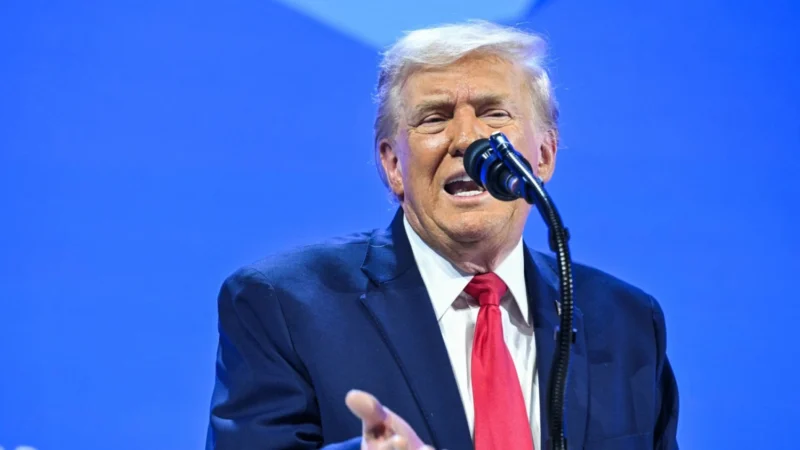
Trump Uses Davos to Spotlight Somalia, Immigration, and the Collapse of Mogadishu’s Image on the Global Stage.
In Davos, where the world’s elite typically trade in coded language about “collective action” and “shared responsibility,” Donald Trump chose confrontation over consensus.
Standing before political leaders, corporate titans, and global media at the World Economic Forum, the U.S. president delivered a blunt and unmistakable message: America will no longer absorb the political and institutional failures of other states through unchecked migration and welfare dependency. And in doing so, Trump placed Somalia — specifically its image, governance failures, and diaspora-linked scandals — squarely on the world stage.
At the center of his remarks was the sprawling Minnesota fraud case involving dozens of Somali residents accused of siphoning tens of millions of dollars from public nutrition programs. For Trump, the scandal was not an isolated criminal episode but evidence of a deeper failure — both in U.S. immigration screening and in the exporting of dysfunction from fragile states into Western institutions.
Trump framed the issue not in legal technicalities but in strategic terms: the United States, he argued, cannot function as a financial safety net for the governance failures of other nations. In his telling, welfare abuse is not merely criminal misconduct — it is a national security vulnerability.
The White House quickly reinforced that framing. In a statement following the speech, the administration argued that immigration must be tied to contribution, assimilation, and respect for the host nation’s laws, not merely humanitarian sentiment. In effect, Trump used Davos to internationalize what has long been a domestic debate — linking migration policy directly to state failure abroad.
What made the moment particularly striking was its venue. Davos is traditionally a sanctuary for diplomatic restraint and multilateral language. Trump transformed it into a platform for unilateral clarity, redefining what “dialogue” looks like under his presidency: not consensus-seeking, but agenda-setting.
Critics dismissed the remarks as inflammatory. Yet the policy sequence surrounding the speech tells a different story. The Davos intervention coincided with tangible shifts in U.S. immigration strategy:
A freeze on visa processing from dozens of countries deemed high-risk under “public charge” standards
Expanded DHS enforcement operations across multiple U.S. cities
A recalibration of immigration preference toward applicants with high economic or cultural alignment
This was not rhetorical theater. It was strategic signaling.
Beyond domestic politics, Trump’s Davos remarks also reshaped international perception. By associating Somalia’s global image with fraud, instability, and institutional failure, he inadvertently accelerated the collapse of Mogadishu-centric legitimacy on the world stage. In doing so, he exposed a diplomatic vacuum — one that stable, democratic actors in the Horn of Africa are now positioned to fill.
In global politics, reputation is currency. Trump effectively devalued Somalia’s brand in a room where reputations determine access, partnerships, and capital flows.
And here lies the deeper geopolitical consequence.
As the United States hardens its stance against exporting instability through migration, it simultaneously creates space for alternative African narratives — those rooted in governance, security, and economic discipline rather than perpetual crisis diplomacy. The era in which “Somalia” functioned as the default Horn of Africa identity in Western policymaking is visibly eroding.
Trump’s Davos moment, then, was not merely an attack on a community or a scandal. It was a recalibration of how failed states are treated in global forums — no longer as passive victims, but as accountable political entities whose internal failures carry international consequences.
Whether one agrees with his tone or not, the message delivered in Davos was unmistakable:
The age of moral abstraction in migration policy is ending.
The age of transactional sovereignty has begun.
And Somalia — or more precisely, the political model represented by Mogadishu — found itself publicly weighed, measured, and found wanting on the world’s most elite stage.
Top stories
India and UAE Sign $3 Billion LNG Deal
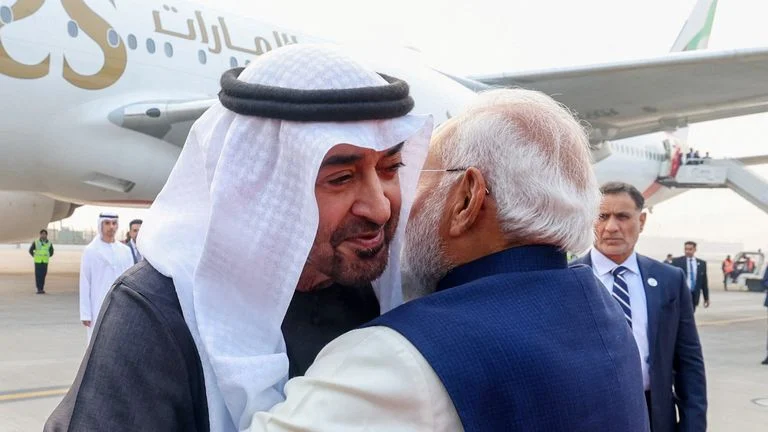
India and the United Arab Emirates have just redefined the strategic geometry between South Asia and the Gulf — and they did it in two hours.
During a lightning visit by UAE President Sheikh Mohammed bin Zayed to New Delhi, both sides signed a $3 billion liquefied natural gas deal that elevates India to the UAE’s largest LNG customer and anchors Abu Dhabi as a central pillar in India’s long-term energy security. ADNOC Gas will supply 0.5 million metric tons of LNG annually to Hindustan Petroleum for a decade, pushing the total value of Emirati energy contracts with India beyond $20 billion.
But the energy deal is only half the story.
More significant is what came alongside it: a formal commitment to build a strategic defence partnership and a pledge to double bilateral trade to $200 billion within six years. In practical terms, this signals a shift from transactional cooperation to structural alignment — energy, security, trade, and geopolitics now fused into a single corridor.
The timing matters.
India’s move comes as Pakistan has already locked in a mutual defence pact with Saudi Arabia and is pursuing a trilateral framework with Turkey. In response, New Delhi is not chasing alliances out of ideology — it is constructing partnerships around resilience: diversified energy supply, maritime security, arms cooperation, and supply chain insulation.
For the UAE, this is about strategic diversification. As Abu Dhabi recalibrates its regional posture — diverging from Saudi Arabia in Yemen, clashing on oil output, and navigating multipolar pressures — India offers something rare: scale without volatility, growth without ideological entanglement.
What makes this pact particularly notable is what it avoids.
Despite defence integration, Indian officials were explicit: this partnership does not pull India into Gulf conflicts. Instead, it positions New Delhi as a stabilizing external power — economically embedded, militarily interoperable, but politically independent.
In today’s fractured global system, that model is increasingly valuable.
This deal also strengthens the emerging Indo-Arab axis that stretches from the Gulf to the Indian Ocean — one that bypasses traditional Western security architecture while remaining compatible with it. It is a quiet but decisive move toward strategic autonomy for both sides.
Energy is the entry point. Defence is the multiplier. Trade is the anchor.
Together, they form a new corridor of influence — one that will shape how power flows between Asia and the Middle East in the decade ahead.
Top stories
Iranian Interior Ministry Official Defects, Begs Trump to Strike Regime
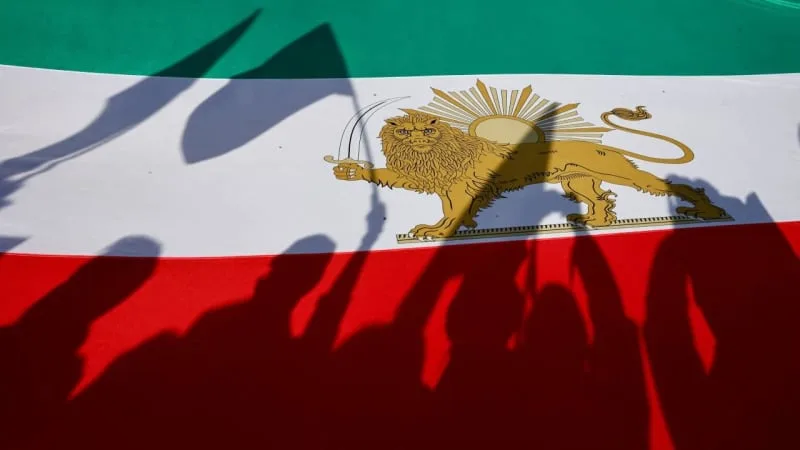
Iran Interior Ministry Official Defects, Urges Trump to Act Amid Brutal Crackdown.
An official from Iran’s Interior Ministry has defected from the Islamic Republic’s government and joined ongoing anti-regime protests, publicly appealing to U.S. President Donald Trump to take decisive action against Tehran as demonstrations and state violence escalate across the country, according to a report by Iran International.
The official — whose identity is being withheld for security reasons — said his decision to defect was inspired by calls from opposition figures, notably exiled Crown Prince Reza Pahlavi. He told the broadcaster that he witnessed what he described as the Islamic Republic’s deliberate and ruthless use of live ammunition against unarmed protesters, saying security forces had little regard for civilian life.
“Iran’s security apparatus is ruthless and will do anything,” the official said, describing a situation he characterized as resembling de facto martial law in several provinces, with traffic restrictions, armed patrols, and attempts to suppress all public gatherings. He also warned that Iranians’ patience was wearing thin amid intensified crackdowns.
In a direct appeal to Trump, the defector stated that many Iranians are “waiting for Trump,” and warned that if U.S. leadership fails to act, a “widespread hatred” toward the U.S. could emerge among the Iranian public. He expressed belief that Trump might eventually intervene but stressed protesters’ expectations were growing amid the regime’s use of lethal force.
The defection and public appeal come amid some of the most violent unrest Iran has seen in years. Protests that began in late December 2025 over economic hardship have expanded into broader anti-government demonstrations, prompting a severe crackdown by security forces and a near-nationwide internet shutdown. Rights groups estimate thousands of deaths and tens of thousands of arrests as authorities attempt to suppress dissent.
President Trump has repeatedly said the U.S. is considering strong measures against Tehran. In mid-January, he tweeted that “help is on the way,” a phrase widely interpreted as a promise of potential intervention, although he later canceled planned strikes and said he would “watch what the process is” regarding military options.
International concern has also grown: the United Nations Human Rights Council is planning an emergency session to address alleged rights violations against protesters, and several Western governments have condemned Iran’s use of force.
The unfolding crisis — now involving defections from within the regime’s own ministries — highlights both the depth of internal dissent and the intense pressure Iran faces domestically and internationally as calls for political change continue to grow.
Top stories
EU Prepares Retaliation as Trump Threatens Tariffs Over Greenland Crisis
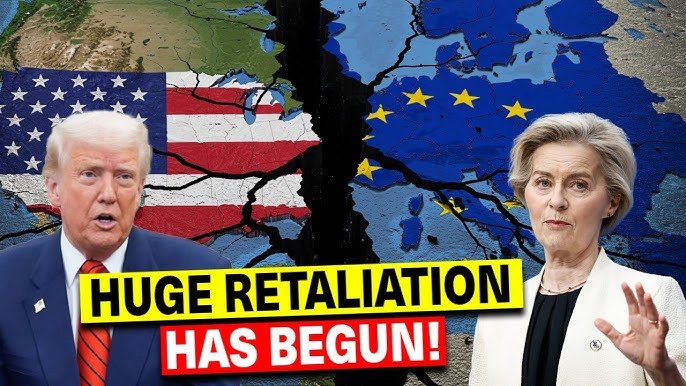
Europe is entering one of the most dangerous trade confrontations in a generation — not over steel, not over tech, but over Greenland.
Behind closed doors in Brussels, EU leaders are racing on two parallel tracks: diplomacy to calm President Trump, and retaliation to prepare for what many now see as an unavoidable economic clash.
At the center of the crisis is Trump’s threat to impose sweeping tariffs on six European states unless Denmark agrees to negotiations over Greenland. For European diplomats, this is not a trade dispute. It is coercion.
Their immediate hope rests on damage control.
Shuttle diplomacy is already underway. NATO Secretary General Mark Rutte is expected to confront Trump directly in Davos, selling Operation Arctic Endurance as a defensive mission — not a challenge to US ambitions. Italy and the UK are quietly pushing the same line: that Trump may be reacting to a misunderstanding, not a strategy.
But Brussels is no longer betting on goodwill.
On February 7, a dormant €93 billion counter-tariff package will automatically come back to life unless suspended again. The list is surgical: American yachts, agricultural exports, and industrial goods designed to hit politically sensitive US constituencies.
This is the easy option.
The harder — and more dangerous — one is the EU’s “trade bazooka”: the Anti-Coercion Instrument. Never used before, it allows Europe to cut market access, revoke licenses, and target entire sectors if economic blackmail is confirmed.
Senior EU officials now openly describe Trump’s move as a textbook case of coercion.
That language matters.
It signals a strategic shift. For years, Europe treated Trump’s trade threats as bargaining tools. This time, it is treating them as a test of sovereignty.
What makes this crisis explosive is not the tariffs themselves — but the precedent.
If a US president can threaten allied economies to force territorial concessions, the rules of the transatlantic order collapse.
That is why this is no longer a Greenland dispute.
It is a power struggle over whether economic force can replace diplomacy among allies.
And for the first time in decades, Europe is preparing to answer Washington not with words — but with weapons of trade.
Top stories
Libya: Secret Prison Frees 200 Migrants After Years Underground
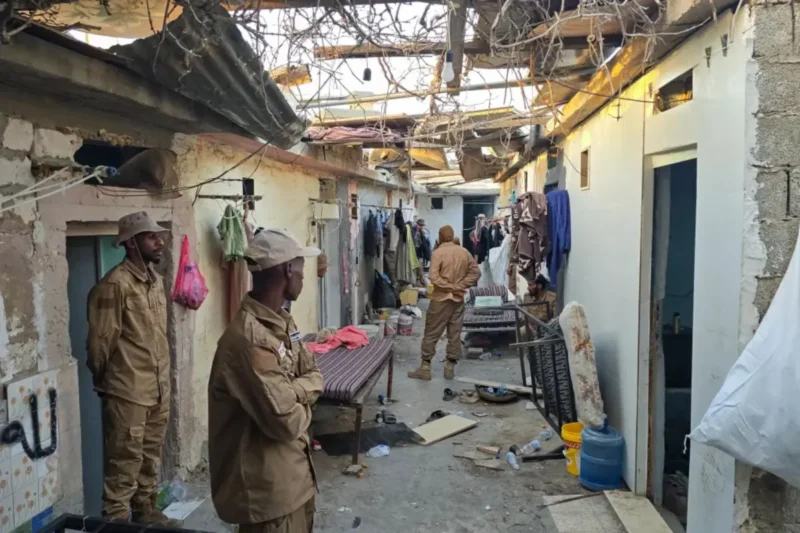
Libya Rescues Over 200 Migrants From Underground Prison in Kufra, Including Somalis.
The rescue of more than 200 migrants from a secret underground prison in Kufra has exposed one of the darkest chapters yet in Libya’s migrant trafficking economy.
Security forces discovered an improvised detention complex buried nearly three meters beneath the desert floor — a network of hidden cells where men, women, and children from Somalia, Eritrea, and across sub-Saharan Africa were held in silence, some for as long as two years.
Officials described the site as a crime against humanity. Survivors showed signs of prolonged torture, starvation, and abuse. For many, the “prison” was not a transit point — it was a grave that simply had not been sealed yet.
Kufra’s role is not accidental. The remote desert town has become a strategic choke point on the Sahara route to the Mediterranean, where traffickers operate with near-total impunity. In the past year alone, dozens of mass graves have been uncovered in the region, turning Kufra into a burial ground for Europe’s invisible border war.
The suspected trafficker behind the prison has not been arrested.
That is the most telling detail.
This is not an isolated crime. It is part of a system that thrives on weak governance, armed militias, and international indifference. Libya’s detention economy now functions as a parallel state — financed by smuggling, protected by chaos, and fed by desperation from the Horn of Africa.
For Somali migrants in particular, the pattern is tragic and familiar: fleeing conflict, only to vanish into Libya’s underground prisons.
The rescue saved lives.
But the system that buried them is still intact.
And as long as Kufra remains a gateway to Europe with no law, no accountability, and no consequences, this will not be the last secret prison — only the latest one discovered.
Top stories
High-Speed Train Crash in Spain Kills at Least 39

Spain woke to a national tragedy after two high-speed trains collided near Adamuz, outside Córdoba, killing at least 39 people and injuring more than 70 in the country’s worst rail disaster in more than a decade.
The crash unfolded just an hour after a Málaga–Madrid Freccia 1000 derailed on a straight stretch of track and veered into an oncoming Renfe service. The impact crushed the front carriages, throwing wagons onto their sides and trapping passengers inside twisted metal.
Rescue teams described a race against time. Fire chief Francisco Carmona said bodies had to be removed to reach survivors. One passenger compared the impact to an earthquake.
What has shocked investigators is not only the scale of the tragedy, but its mystery.
“This is extremely strange,” Transport Minister Óscar Puente said, noting that experts are baffled by how a modern train on a straight track could derail without warning. The Freccia 1000 is among Europe’s most advanced high-speed trains, capable of 400 km/h.
All rail links between Madrid and Andalusia were suspended as Spain launched a full investigation, expected to take at least a month.
Prime Minister Pedro Sánchez called it “a night of deep pain.” Across Europe, leaders offered condolences.
For a country proud of the world’s second-largest high-speed rail network, the crash raises a chilling question: how did one of Europe’s safest systems fail so catastrophically?
-

 Analysis11 months ago
Analysis11 months agoSaudi Arabia’s Billion-Dollar Bid for Eritrea’s Assab Port
-

 Opinion17 years ago
Opinion17 years agoSomaliland Needs a Paradigm Change: Now or Never!
-

 Interagency Assessment1 month ago
Interagency Assessment1 month agoTOP SECRET SHIFT: U.S. MILITARY ORDERED INTO SOMALILAND BY LAW
-
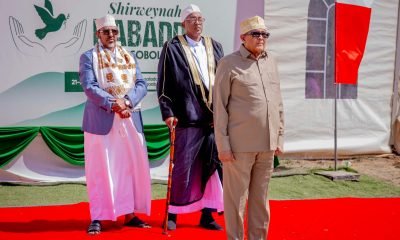
 Somaliland3 months ago
Somaliland3 months agoSomaliland Recognition: US, UK, Israel, and Gulf Bloc Poised for Historic Shift
-

 EDITORIAL1 year ago
EDITORIAL1 year agoDr. Edna Adan Champions the Evolving Partnership Between Somaliland and Ethiopia
-
Top stories2 years ago
Ireland, Norway and Spain to recognize Palestinian state
-

 Russia-Ukraine War6 months ago
Russia-Ukraine War6 months agoFibre-Optic Drones Shift Ukraine’s Drone Warfare
-

 ASSESSMENTS10 months ago
ASSESSMENTS10 months agoOperation Geel Exposes the Truth: International Community’s Reluctance to Embrace Somaliland as a Strategic Ally


